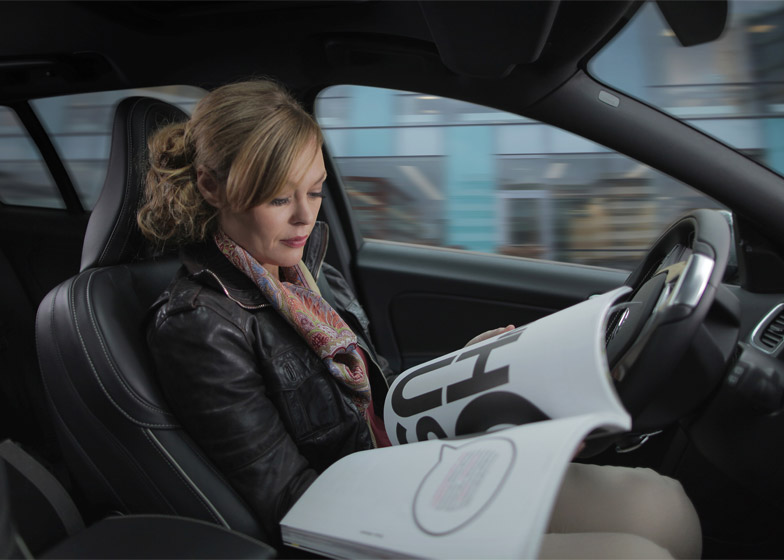News: Swedish car manufacturer Volvo has revealed plans to test 100 self-driving vehicles on city streets with members of the public by 2017.
Speaking at an online press conference, Volvo's research and development team outlined the "one-of-a-kind" pilot scheme that will see members of the public testing the autonomous vehicles in normal road conditions.
Collaborating with legislators and transport authorities, Volvo is hoping to conduct the tests "around 2017" in the Swedish city of Gothenburg. It is the first time that a scheme involving the transportation of "ordinary people" in self-driving cars around an uncontrolled urban environment has been proposed.
"We are entering uncharted territory in the field of autonomous driving," explained Volvo's research and development chief Peter Mertens. "Taking the exciting step to a public pilot, with the ambition to enable ordinary people to sit behind the wheel in normal traffic on public roads, has never been done before."
Citing "sustainable mobility" and "a crash-free future" as its ultimate goals, Volvo has designed what it describes as a production-viable autonomous driving system called Drive Me that uses a complex network of sensors, positioning systems, and braking and steering technologies.
"Autonomous driving will fundamentally change the way we look at driving," said Mertens. "In the future, you will be able to choose between autonomous and active driving. This transforms everyday commuting from lost time to quality time, opening up new opportunities for work and pleasure."
In autonomous mode, every aspect of driving will be controlled by Volvo's autopilot system. This has been designed to reliably interpret and deal with difficult traffic scenarios as well as technical faults that may occur.
"It cannot be expected that the driver is ready to suddenly intervene in a critical situation," said Volvo in a statement. "Initially, the cars will drive autonomously on selected roads with suitable conditions, for example without oncoming traffic, cyclists and pedestrians."
The Drive Me system combines a number of components including radars, ultra-sonic sensors and a high-performance global positioning system (GPS) that work together to assess potential collision risks in real-time, analyse traffic conditions, and pick optimum routes to improve the traffic circulation of a city.
"It is relatively easy to build and demonstrate a self-driving concept vehicle," explained Volvo's technical specialist Erik Coelingh. "But if you want to create an impact in the real world, you have to design and produce a complete system that will be safe, robust and affordable for ordinary customers."
"Making this complex system 99 per cent reliable is not good enough," Coelingh continued. "You need to get much closer to 100 per cent before you can let self-driving cars mix with other road users in real-life traffic. Here, we have a similar approach to that of the aircraft industry.
"Our fail-operational architecture includes backup systems that will ensure that autopilot will continue to function safely also if an element of the system were to become disabled."
At the recent launch of a self-driving "pod", the UK government announced a change in its regulatory framework that will allow for autonomous testing to begin on British roads in controlled conditions later this year.
"Driverless cars are the future," said the UK's transport minister Claire Perry at the event. "I want Britain to be at the forefront of this exciting new development, to embrace a technology that could transform our roads and open up a brand new route for global investment."

